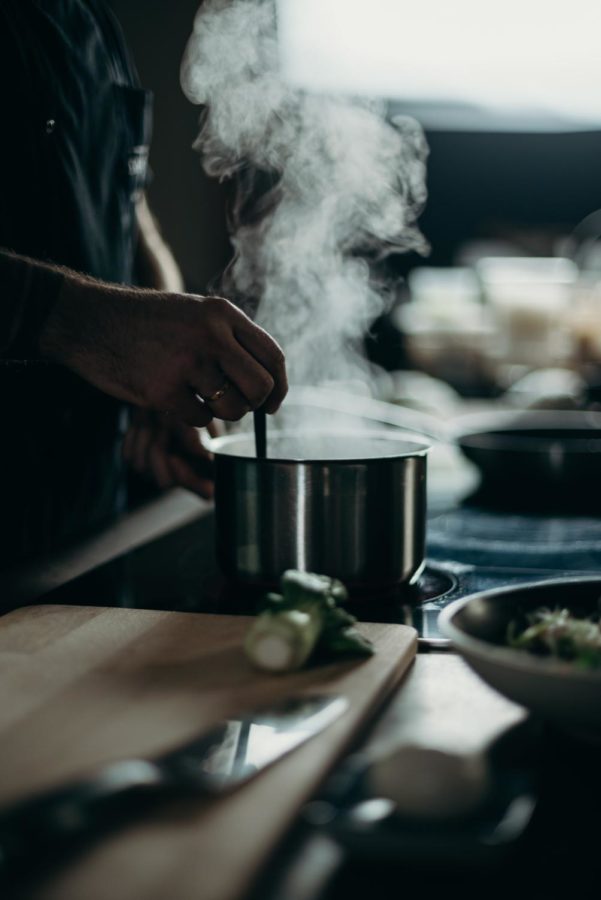DVC Culinary Program Implements New Safety Regulations
March 12, 2021
The global COVID-19 pandemic has had a huge impact on the way people work, learn – and cook. John Matheson, who has been a chef since 1978 and has been teaching in the Diablo Valley College culinary program for the past eight years, said the pandemic has “made it very difficult because culinary is a type of industry where you need to be close together, because we work in small kitchens and also it’s experiential.”
The culinary program, Matheson explained, is like swimming: he can tell you all about it, but you won’t know how to swim until you get in the pool yourself. The culinary program at DVC follows strict safety regimens, with groups no larger than eight students allowed in the kitchen at once, and disposable masks required – which makes tasting food a more complicated undertaking. Nonetheless, the culinary program can only have on-campus classes if it adheres to these restrictions.
Chef Matheson said that having a limit on the number of people in the kitchen can be both a good and a bad thing. “In some ways it’s an advantage because you get more of a chance to interact with your instructor, so that could be the good side,” he said.“The disadvantage is it takes a lot longer for everybody to get the training that they need, because you can’t all be there at the same time.” In addition to enforcing masks and social distancing protocols, culinary instructors carry out temperature checks and contact tracing to ensure safety for faculty and students.
Sonya Martin, a DVC student who started training in the culinary program during the pandemic, said she wasn’t sure how the school would teach the courses in-person, since social distancing rules would be hard to apply. “Kitchens are usually small, you’re sweating, it’s fast-paced and you really have to work as a team,” she said. “I was [confused] because being in any culinary program you are working closely with other students, and the six-feet-apart rule would be very difficult to follow.”
Johanne Pierre, another student in the culinary program, initially had doubts about taking the in-person classes. “I was unsure about how the culinary labs would work out because usually we are cooking or at least making stuff in the labs,” she said.
With vaccines now being distributed at a faster pace, the program may be able to resume in-person teaching in the fall, with optional online courses for certain subjects. Martin and Pierre agreed that culinary classes should ideally happen in a shared setting – but that some courses, if they don’t require physically being in the kitchen, could be made available to students remotely.
“I personally have been doing online classes for years, long before COVID,” Martin said. “Online learning works better for a lot of people. I definitely am one of them.” But for Pierre, the logistics of learning how to cook from a remote setting via Zoom posed challenges. “I would prefer to be able to safely return to taking classes in person,” she said. “Online learning makes it difficult to stay focused, and sometimes the internet connection is slow or doesn’t work.”
Chef Matheson said he remained unsure whether courses in the department, which is currently in revitalization, would be offered online starting in August. “I don’t know yet, we may have some online,” he said, “but we would prefer to be in person.”









































































